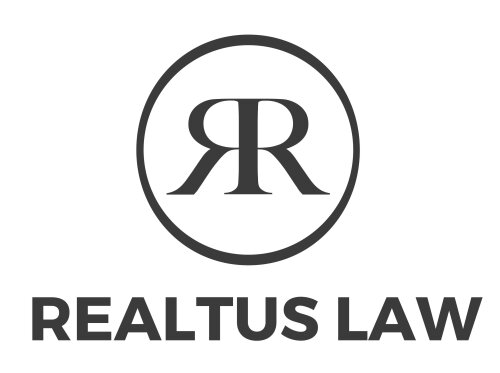Best Admiralty & Maritime Lawyers in Canada
Share your needs with us, get contacted by law firms.
Free. Takes 2 min.
Or refine your search by selecting a city:
List of the best lawyers in Canada
About Admiralty & Maritime Law in Canada
Admiralty & Maritime law in Canada is a specialized area of law that governs activities related to the sea. It encompasses a wide range of issues, including shipping, navigation, waters, insurance, canals, recreation, and the transportation of goods and people by sea. Canadian maritime law is influenced by various sources, including domestic statutes like the Canada Shipping Act, international treaties, and common law principles. The Federal Court of Canada has jurisdiction over many maritime matters, ensuring a unified approach to legal issues that arise in Canada’s navigable waters.
Why You May Need a Lawyer
There are numerous scenarios where individuals and companies may require legal assistance in the realm of Admiralty & Maritime law: - Shipping Contracts: Disputes or negotiations related to charter parties, bills of lading, or other shipping contracts. - Maritime Accidents: Incidents such as collisions, personal injuries, and oil spills that require knowledge of liability and environmental laws. - Cargo Claims: Loss, damage, or delay of shipments could lead to complex legal cases needing expertise. - Arrest of Vessels: Legal procedures involving the detention of a ship to secure maritime claims. - Insurance Issues: Claims involving marine insurance policies, which require specialized legal interpretation. - Marine Pollution: Legal obligations pertaining to environmental protection and regulation compliance. - Salvage and Towage: Rights and responsibilities in salvage operations and towage contracts.
Local Laws Overview
Key aspects of Canadian maritime law include: - The Canada Shipping Act: Primarily regulates shipping activities, safety, and environmental protection in Canadian waters. - Marine Insurance Act: Governs marine insurance policies. - Federal Court Jurisdiction: The Federal Court handles most maritime disputes, offering a distinct legal framework from provincial jurisdictions. - The Admiralty Act: Confers jurisdiction and outlines procedures specific to Canadian admiralty cases. - International Conventions: Canada is a signatory to numerous international maritime conventions, influencing domestic legislation and practices.
Frequently Asked Questions
What is the role of the Canadian Coast Guard in maritime law?
The Canadian Coast Guard enforces maritime laws, including those related to vessel safety, search and rescue operations, and environmental protection.
What courts have jurisdiction over maritime cases in Canada?
The Federal Court of Canada primarily handles maritime cases, though certain cases can initiate in provincial courts.
Do international treaties affect Canadian maritime law?
Yes, Canada is bound by several international maritime treaties, and these agreements significantly influence domestic maritime law practices.
What types of insurance are applicable in maritime activities?
Marine insurance, including hull, cargo, protection and indemnity (P&I), is essential for vessels and shipments to cover potential risks.
How are maritime contracts enforced in Canada?
Maritime contracts are enforced through both domestic and international law, with the Federal Court usually acting to address disputes.
What constitutes a maritime lien in Canadian law?
A maritime lien is a legal claim against a ship for debts related to the vessel or its operations, taking precedence over registered security interests.
How does the arrest of ships work legally?
The ship arrest procedure involves a court order to detain a vessel as security for a maritime claim, ensuring the claimant can enforce their rights.
What are typical liabilities in maritime accidents?
Liabilities can include compensation for personal injury, environmental damage, and losses to cargo, determined by specific maritime laws and treaties.
How are environmental impacts regulated?
Canadian maritime laws enforce strict regulations to minimize environmental impacts, incorporating protocols from international environmental agreements.
What should I do if involved in a maritime collision?
If involved in a maritime collision, document the incident, seek immediate legal advice, and report to the appropriate authorities for investigation.
Additional Resources
For more information on Admiralty & Maritime law, consider engaging with the following resources: - Transport Canada: Oversees maritime safety and security. - Canadian Coast Guard: Provides search and rescue services and regulates navigable waters. - The Federal Court of Canada: Offers resources related to its jurisdiction over maritime disputes. - International Maritime Organization (IMO): Assists in understanding international conventions affecting Canada. - Maritime Law Association of Canada: A professional organization offering insights on maritime law trends and practices.
Next Steps
If you need legal assistance in Admiralty & Maritime, take the following steps: - Assess Your Situation: Clearly identify the issue at hand and gather relevant documents. - Consult a Lawyer: Seek a lawyer specializing in Canadian maritime law who can provide informed guidance and representation. - Prepare Your Case: Work with your lawyer to understand legal obligations and potential outcomes. - Engage with Resources: Utilize additional resources and organizations to stay informed about your rights and obligations under maritime law.
Lawzana helps you find the best lawyers and law firms in Canada through a curated and pre-screened list of qualified legal professionals. Our platform offers rankings and detailed profiles of attorneys and law firms, allowing you to compare based on practice areas, including Admiralty & Maritime, experience, and client feedback.
Each profile includes a description of the firm's areas of practice, client reviews, team members and partners, year of establishment, spoken languages, office locations, contact information, social media presence, and any published articles or resources. Most firms on our platform speak English and are experienced in both local and international legal matters.
Get a quote from top-rated law firms in Canada — quickly, securely, and without unnecessary hassle.
Disclaimer:
The information provided on this page is for general informational purposes only and does not constitute legal advice. While we strive to ensure the accuracy and relevance of the content, legal information may change over time, and interpretations of the law can vary. You should always consult with a qualified legal professional for advice specific to your situation.
We disclaim all liability for actions taken or not taken based on the content of this page. If you believe any information is incorrect or outdated, please contact us, and we will review and update it where appropriate.
Browse admiralty & maritime law firms by city in Canada
Refine your search by selecting a city.

















